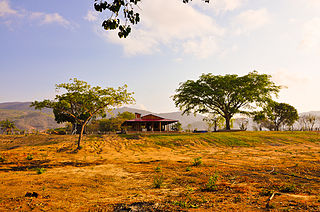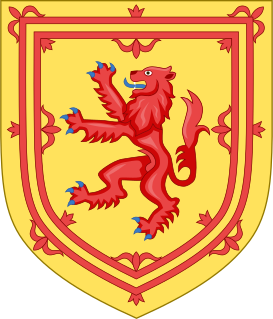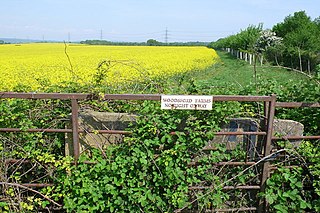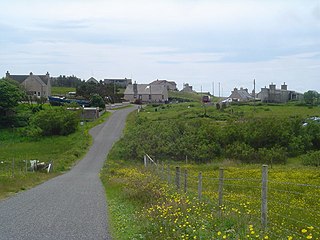
In the United Kingdom, a scheduled monument is a nationally important archaeological site or historic building, given protection against unauthorised change.
A land value tax (LVT) is a levy on the value of land without regard to buildings, personal property and other improvements. It is also known as a location value tax, a site valuation tax, split rate tax, or a site-value rating,
In economics, an absentee landlord is a person who owns and rents out a profit-earning property, but does not live within the property's local economic region. The term "absentee ownership" was popularised by economist Thorstein Veblen's 1923 book of the same name, Absentee Ownership. Overall, tax policy seems to favour absentee ownership. However, some jurisdictions seek to extract money from absentee owners by taxing land. Absentee ownership has sometimes put the absentee owners at risk of loss.

Land reform is a form of agrarian reform involving the changing of laws, regulations, or customs regarding land ownership. Land reform may consist of a government-initiated or government-backed property redistribution, generally of agricultural land. Land reform can, therefore, refer to transfer of ownership from the more powerful to the less powerful, such as from a relatively small number of wealthy or noble owners with extensive land holdings to individual ownership by those who work the land. Such transfers of ownership may be with or without compensation; compensation may vary from token amounts to the full value of the land.

An ejido is an area of communal land used for agriculture in which community members have usufruct rights rather than ownership rights to land, which in Mexico is held by the Mexican state. People awarded ejidos in the modern era farm them individually in parcels and collectively maintain communal holdings with government oversight. Although the system of ejidos was based on an understanding of the preconquest Aztec calpulli and the medieval Spanish ejido, in the twentieth century ejidos are government-controlled.

The Emancipation Reform of 1861 in Russia, also known as the Edict of Emancipation of Russia, was the first and most important of the liberal reforms enacted during the reign (1855–1881) of Emperor Alexander II of Russia. The reform effectively abolished serfdom throughout the Russian Empire.

The West Highland Free Press was founded in the Scottish Highlands in 1972 as a left-wing weekly newspaper, but with the principal objective of providing its immediate circulation area with the service which a local paper is expected to provide. It is based at Broadford on the Isle of Skye, covering Skye, Wester Ross and the Outer Hebrides.
The Crofters Holdings (Scotland) Act 1886 is an Act of the Parliament of the United Kingdom that created legal definitions of crofting parish and crofter, granted security of land tenure to crofters and produced the first Crofters Commission, a land court which ruled on disputes between landlords and crofters. The same court ruled on whether parishes were or were not crofting parishes. In many respects the Act was modelled on the Irish Land Acts of 1870 and 1881. By granting the crofters security of tenure, the Act put an end to the Highland Clearances.
Laird is a generic name for the owner of a large, long-established Scottish estate. In the traditional Scottish order of precedence, a laird ranked below a baron and above a gentleman. This rank was held only by those lairds holding official recognition in a territorial designation by the Lord Lyon King of Arms. They are usually styled [name] [surname] of [lairdship]. However, since "laird" is a courtesy title, it has no formal status in law.
In the law of the Middle Ages and early Modern Period and especially within the Holy Roman Empire, an allod, also allodial land or allodium, is an estate in land over which the allodial landowner (allodiary) had full ownership and right of alienation.

Land reform in Scotland is the ongoing process by which the ownership of land, its distribution and the law which governs it is modified, reformed and modernised by property and regulatory law.

Scots property law governs the rules relating to property found in the legal jurisdiction of Scotland. As a hybrid legal system with both common law and civil law heritage, Scots property law is similar, but not identical, to property law in South Africa and the American state of Louisiana.
The problem of land reform in Ethiopia has hampered that country's economic development throughout the late 19th and 20th centuries. Attempts to modernize land ownership by giving title either to the peasants who till the soil, or to large-scale farming programs, have been tried under imperial rulers like Emperor Haile Selassie, and under Marxist regimes like the Derg, with mixed results. The present Constitution of Ethiopia, which was put into force January 1995, vests land ownership exclusively "in the State and in the peoples of Ethiopia." The relevant section continues, "Land is a common property of the Nations, Nationalities and Peoples of Ethiopia and shall not be subject to sale or to other means of exchange." Despite these different approaches to land reform, Ethiopia still faces issues of sustainable food self-sufficiency.

Right of way is the legal right, established by grant from a landowner or long usage, to pass along a specific route through property belonging to another. A similar right of access also exists on land held by a government, lands that are typically called public land, state land, or Crown land. When one person owns a piece of land that is bordered on all sides by lands owned by others, an easement may exist or might be created so as to initiate a right of way through the bordering land.

Coll is a farming settlement near Stornoway, on the Isle of Lewis in the Outer Hebrides, Scotland. Coll is situated on the B895, between Stornoway and New Tolsta, and is also within the parish of Stornoway.
Agrarian reform and land reform have been a recurring theme of enormous consequence in world history. They are often highly political and have been achieved in many countries.
Land reform in the Philippines has long been a contentious issue rooted in the Philippines's Spanish Colonial Period. Some efforts began during the American Colonial Period with renewed efforts during the Commonwealth, following independence, during Martial Law and especially following the People Power Revolution in 1986. The current law, the Comprehensive Agrarian Reform Program, was passed following the revolution and recently extended until 2014.

The Land Reform (Scotland) Act 2003 is an Act of the Scottish Parliament which establishes statutory public rights of access to land and makes provisions under which bodies representing rural and crofting communities may buy land.

The Scottish Land Commission was established by the Scottish Government following the passage of the Land Reform (Scotland) Act 2016 by the Scottish Parliament; the Commission also incorporates the work of the Tenant Farming Commissioner. The Lands Commissioners, who constitute the Commission, have functions relating to land in Scotland, so that they address issues which relate to ownership of land, land rights, management of land, and use of land. The Tenant Farming Commissioner has the aim of improving the relationship between tenant farmers and land owners, and can create codes of practice, provide practical guidance, and must consult on such matters. The Tenant Farming Commissioner cannot be an agricultural landlord or agricultural tenant, and will develop codes of practice which are in addition to the law and the jurisdiction of the Scottish Land Court.
Concentration of land ownership refers to the ownership of land in a particular area by a small number of people or organizations. It is sometimes defined as additional concentration beyond that which produces optimally efficient land use.










